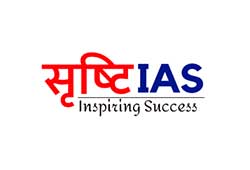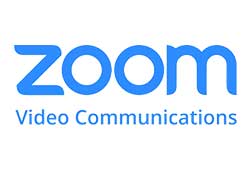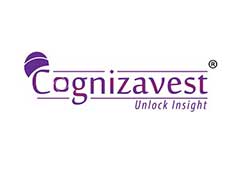Duration
12 Months
Eligibility
Graduation & Above OR 12th with 10 years of experience
Program Credits
4
Program Start Date
Depends on the number of seats left
Course Overview
If you're feeling uncertain about whether this course is the right fit for you or have any questions, feel free to reach out to our "Career Expert". We're here to help you find the best path forward.
About this Course
Learning Objectives
- Entrepreneurial Training with Experiential Learning
- Online Cohort Based Learning
- Real Life Case Studies & Role Plays
- On the Job Learning
- Capstone Projects, Assignments, & Workshops
- Work as a Mental Health Ambassador
This certificate is a testament to your dedication, hard work, and mastery of essential skills and specializations. It recognizes your commitment to excellence and marks your achievement in creating meaningful impact in your field.
You will receive this additional certificate upon completing the program, making your profile truly future-ready and industry-recognized.
Course Curriculum
Program Credits
Modules
Session hours
Practical hours
OJL hours
- Understanding Depression: Types, causes, and symptoms.
- Therapeuti c Approaches: CBT, MBCT, and psychodynami c methods.
- Coping Strateg i es: Healthy routines, stress management, and support systems.
- Crisis Intervention: Manag ing sui c i dal i deation, safety planning , and relapse prevention.
- Understanding Anxiety: Types, causes, and triggers of anxiety disorders.
- Cognitive Behavioral Techniques: Identifying negative thoughts and developing coping strategies.
- Mindfulness and Stress Management: Techniques like deep breathing and mindfulness-based stress reduction (MBSR).
- Building Resilience and Support Systems: Lifestyle changes, exercise, sleep hygiene, and social support.
- Types of Addiction
- Causes and Risk Factors
- Addiction Treatment Models
- Developing Treatment Plans
- Identifying Stressors
- Stress Reduction Techniques
- Cognitive Behavioral Strategies for Stress& Branding Difference and importance
- Relaxation Techniques
- Understanding Anger: Identifying triggers and the role of anger in emotional regulation.
- Cognitive Behavioral Techniques: Using CBT to challenge negative thoughts and manage impulsive reactions.
- Mindfulness & Relaxation: Practicing mindfulness, breathing exercises, and relaxation to manage anger.
- Improving Communication: Enhancing assertiveness, active listening, and conflict resolution skills.
- Improving Attention: Techniques to enhance focus and reduce distractions.
- Memory Enhancement: Strategies like visualization and repetition to boost recall.
- Managing Cognitive Load: Reducing stress to optimize memory and focus.
- Mindfulness Practices: Using mindfulness to improve clarity and mental function.
- Core Values & Strengths: Reconnect with personal beliefs for growth.
- SMART Goals: Set achievable goals for transformation.
- Emotional Resilience: Build coping strategies for challenges.
- Self-Identity & Purpose: Redefine identity and find meaning.
- Time Management: Techniques for prioritizing tasks and reducing stress.
- Setting Boundaries: Creating clear work-life boundaries to avoid burnout.
- Stress Management: Using mindfulness and relaxation to handle work stress.
- Self-Care: Importance of physical and emotional self-care for well-being.
- Understanding Grief: Theories of grief (e.g., Kubler-Ross stages) and factors influencing the grieving process.
- Grief Counseling Techniques: Approaches like empathy, active listening, and creative therapies (journaling, art).
- Complicated Grief: Identifying and treating prolonged grief disorder, including therapeutic methods.
- Grief in Special Populations: Supporting children, adolescents, and those facing sudden or traumatic loss.
- Communication: Verbal/non-verbal communication, active listening, and overcoming barriers.
- Conflict Resolution: Different conflict styles and techniques for healthy resolution.
- Trust and Intimacy: Building trust, emotional intimacy, and setting boundaries.
- Expectations: Managing unrealistic expectations and aligning relationship goals.
- Principles of Behavior Modification: Techniques like reinforcement and punishment to change observable behavior.
- Operant Conditioning: Using reinforcement and punishment to modify behavior.
- Cognitive-Behavioral Techniques: Challenging negative thoughts to change behavior.
- Applied Behavior Analysis (ABA): Systematic approach to improve specific behaviors, often in developmental disorders.
- Employee Stress Management: Techniques for coping with work-related stress (e.g., mindfulness, time management).
- Conflict Resolution: Approaches to resolving workplace conflicts through communication and mediation.
- Work-Life Balance: Strategies to help employees balance personal and professional life.
- Career Development: Counseling for career growth, skill development, and transitions.
- Psychological Assessment – Tools for diagnosing adult mental health issues (e.g., depression, anxiety).
- CBT for Adults – Using Cognitive Behavioral Therapy to address stress, anxiety, and depression.
- Relationship Counseling – Improving communication and resolving conflicts in adult relationships.
- Career Counseling – Helping adults navigate career transitions and work-life balance.
- The Here-and-Now Concept
- Self-Awareness and Presence
- Empty Chair Technique
- Integrating Gestalt in Therapy
- Freedom and Responsibility
- Meaning of Life
- Existential Guilt
- Authenticity in Therapy
- Carl Rogers' Person-Centered Therapy
- Unconditional Positive Regard
- Self-Actualization
- Therapeutic Alliance in Humanistic Therapy
- Goal Setting in Therapy
- Miracle Question Technique
- Strength-Based Approach
- Solution-Oriented Techniques
- Externalizing Problems
- Re-authoring the Client’s Story
- Therapeutic Conversations
- Techniques in Narrative Therapy
- Therapy (ACT)
- Principles of ACT
- Cognitive Defusion
- Mindfulness and Acceptance
- Values and Behavioral Commitment
- Classical Conditioning
- Operant Conditioning
- Behavior Modification Techniques
- Systematic Desensitization
- Expressive Arts for Healing
- Techniques in Art Therapy
- Benefits of Art Therapy
- Art Therapy for Trauma
- Using Music for Healing
- Techniques in Music Therapy
- Psychological Effects of Music
- Music Therapy for Emotional Expression
- Ego States in Therapy
- Script Analysis
- Transactions and Communication
- Life Positions in Therapy
- EMDR Overview
- The Phases of EMDR
- Bilateral Stimulation
- EMDR for Trauma
- Role of Play in Child Development
- Techniques in Play Therapy
- Benefits of Play for Children
- Combining Approaches in Therapy
- Benefits of Integrative Models
- Tailoring Therapy for Clients
- Multi-Modal Approaches
- Definition and scope
- Key challenges in counseling entrepreneurship
- The role of psychology in entrepreneurship
- Assessing community needs
- Target audience analysis
- Finding niche markets
- Setting clear goals and objectives
- Developing a business model
- Financial planning and budgeting
- Licensure and certification
- Ethical guidelines for counselors in private practice
- Legal responsibilities and risk management
- Defining your counseling brand
- Creating a unique value proposition
- Marketing and promotion strategies
- Choosing the right location
- Office setup and client confidentiality
- Creating a professional and welcoming space
- Building trust and rapport
- Setting clear boundaries
- Client retention strategies
- Online marketing tools and platforms
- Networking and partnerships
- Referral programs and word-of-mouth marketing
- Managing income and expenses
- Setting fees and payment structures
- Tax planning and financial compliance
- Identifying client needs and designing services
- Group therapy vs. individual counseling
- Creating online or remote counseling options
- Scheduling and balancing workloads
- Managing client appointments and sessions
- Personal time management for self-care
- Developing intake forms and questionnaires
- Risk assessment and emergency procedures
- Goal-setting with clients
- Building partnerships with other mental health professionals
- Attending conferences and workshops
- Online networking and presence
- Software for client management
- Telehealth tools and platforms
- Digital resources for counseling
- Creating multiple streams of income
- Investment and retirement planning for counselors
- Managing cash flow and saving strategies
- Handling emergencies and client crises
- Referral systems for urgent situations
- Creating crisis management protocols
- Hiring administrative and support staff
- Team dynamics and communication
- Delegating tasks and responsibilities
- Managing burnout and stress
- Balancing work and personal life
- Mindfulness and relaxation techniques
- Continuing education and certifications
- Supervision requirements for counselors
- Staying updated on new counseling techniques
- Managing client disagreements or complaints
- Resolving internal staff conflicts
- Mediating disputes with partners or collaborators
- Types of insurance needed (e.g., malpractice, general liability)
- Understanding coverage and policy options
- Mitigating risks in a counseling practice
- Adjusting business strategies based on outcomes
- Leveraging social media for personal brand growth
- Public speaking and writing for exposure
- Follow-up practices and continued support
- Offering additional services or programs
- Creating loyalty programs
- Expanding services and offerings
- Hiring additional counselors or staff
- Franchising or licensing your practice
- Securing loans or investments for growth
- Planning for large-scale operations
- Cost-benefit analysis for scaling
- Tracking client progress and satisfaction
- Measuring business growth and profitability
- Adjusting business strategies based on outcomes
- Identity formation in adolescence
- Changes in brain structure
- Role of hormones
- Impact on decision-making
- Implications for behavior
- Peer influence
- Role of family
- Impact on mental health
- Gender identity development
- Cultural influences
- Gender dysphoria
- Impact of media
- Autism Spectrum Disorder
- ADHD overview
- Early intervention strategies
- Role of family support
- Importance of balanced diet
- Nutritional deficiencies
- Childhood obesity
- Role of diet in cognitive development
- Importance of sleep
- Sleep patterns in children
- Impact of sleep deprivation
- Parental strategies for healthy sleep
- Classical Conditioning (Pavlov)
- Operant Conditioning (Skinner)
- Observational Learning (Bandura)
- Educational applications
-
Types of Memory (Sensory, Short-Term, Long-Term)
-
Working Memory in Childhood
-
Role of Repetition and Practice
-
Memory Enhancement Techniques
-
Common Language Delays
-
Dyslexia and Reading Challenges
-
Assessment of Language Disorders
-
Intervention Strategies
-
Diagnosis and Assessment
-
Disinhibited Social Engagement Disorder
-
Reactive Attachment Disorder
-
Treatment Approaches
-
Anxiety Disorders
-
Depression in Teens
-
Early Warning Signs
-
Intervention and Support
-
Psychological Effects
-
Role of Custody Arrangements
-
Coping Mechanisms for Children
-
Long-Term Implications
-
Types of Bullying (Physical, Verbal, Cyberbullying)
-
Impact on Self-Esteem
-
Prevention and Intervention Strategies
-
Role of Schools and Parents
-
Types of Memory (Sensory, Short-Term, Long-Term)
-
Working Memory in Childhood
-
Role of Repetition and Practice
-
Memory Enhancement Techniques
-
Common Language Delays
-
Dyslexia and Reading Challenges
-
Assessment of Language Disorders
-
Intervention Strategies
-
Reactive Attachment Disorder
-
Disinhibited Social Engagement Disorder
-
Diagnosis and Assessment
-
Treatment Approaches
-
Anxiety Disorders
-
Depression in Teens
-
Early Warning Signs
-
Intervention and Support
-
Psychological Effects
-
Role of Custody Arrangements
-
Coping Mechanisms for Children
-
Long-Term Implications
-
Types of Bullying (Physical, Verbal, Cyberbullying)
-
Impact on Self-Esteem
-
Prevention and Intervention Strategies
-
Role of Schools and Parents
-
Stages of counseling: assessment, treatment planning, intervention, and evaluation
-
Establishing rapport and trust with clients
-
Ethical considerations in the counseling process
-
Confidentiality and boundaries
-
The difference between mind and brain: psychological vs. biological
-
Key brain structures and their roles in behavior (e.g., prefrontal cortex, amygdala)
-
The relationship between mental health and brain function
-
Neuroplasticity: how the brain adapts and changes over time
-
The connection between thoughts, feelings, and behavior
-
Cognitive distortions and their impact on emotional well-being
-
Emotional regulation: techniques for managing emotions effectively
-
The role of mindfulness in thought and emotion management
How will this program benefit you?
The Counselor Entrepreneurship Program (CLEP) is designed to equip you with the skills and knowledge needed to excel in the counseling profession and successfully manage your own practice.
You will explore subjects like business psychology , learning how psychological principles apply to the workplace, business growth, and customer relations.
The course is highly interactive, providing you with personalized mentorship, exposure to marketing and branding strategies for your practice, and practical tools for managing clients effectively. This course will provide you with the business acumen, psychological insight, and client management skills necessary for long-term success.
Who all can join?
Aspiring Counsellors/Therapists
Individuals Seeking Additional Income/Side Hustle
Counsellors/Therapists Starting a Venture
Counsellors/Therapists Aspiring to Upskill
Counsellors/Therapists Building a Personal Brand


Get Upto 35% Scholarship
"Avail up to a 35% scholarship and receive exclusive additional benefits."
- Alumni Network of 12,500+ Members - Gain access to a vast network of over 12,500 alumni who can support and guide you in your professional ventures.
- 90+ Hiring Partners - Benefit from dedicated job assistance through our extensive network of over 90 hiring partners, ensuring you have the best opportunities in the industry.
- Exclusive Membership - Enroll now and enjoy a complimentary membership, providing access to valuable resources and opportunities.
- Personalized Mentoring Sessions - Receive multiple one-on-one mentoring sessions with industry professionals throughout the course, helping you navigate your career path.
- Workshops, Events, and Bootcamps - Get free access to a wide range of workshops, events, bootcamps, and networking meetings, designed to enhance your skills and expand your professional network.

Course Faculty

Refer someone and Earn upto INR 12,000 Cashback/Vouchers, on every successful enrollment
Your friend also gets an instant scholarship!
Success Stories
Our Learners Work At
Frequently Asked Questions
CLEP is a training program designed to help individuals start and grow their own counselling practice. It covers everything from business basics to advanced counselling techniques.
Yes, completing the Psychology Foundation Course is mandatory and complimentary for all enrolled learners. This foundational course must be completed within 3 months to qualify for the final certificate. It is designed to strengthen your basics in psychology, ensuring you have a solid understanding to excel in advanced modules of the program.
Anyone interested in becoming a professional counsellor or starting their own counselling venture can join. You don’t need prior experience, but a passion for helping others is essential.
You’ll learn how to set up your own practice, understand business strategies, develop counselling skills, and effectively market your services.
The program typically lasts 12 months, with flexible learning modules that you can complete at your own pace.
No special qualifications are required to enroll, but having a background in psychology or counselling can be helpful. The program is designed for both beginners and those with some experience.
You’ll receive ongoing support from experienced industry leaders, access to a network of peers, and resources to help you succeed in both counselling and business aspects.
Yes, upon successful completion, you’ll receive a certificate that recognizes your achievement and readiness to start your counselling practice.
Joining CLEP provides you with the skills and knowledge to start your own practice, develop effective counselling strategies, and connect with a supportive community of professionals.
You can apply by visiting our website link, filling out the application form, and submitting any required documents. Our academic counsellor will get in touch with you to guide you through the next steps.



_1755835754.png)






_1693906637.jpeg)
_1693906710.jpeg)























_1752926748.png)